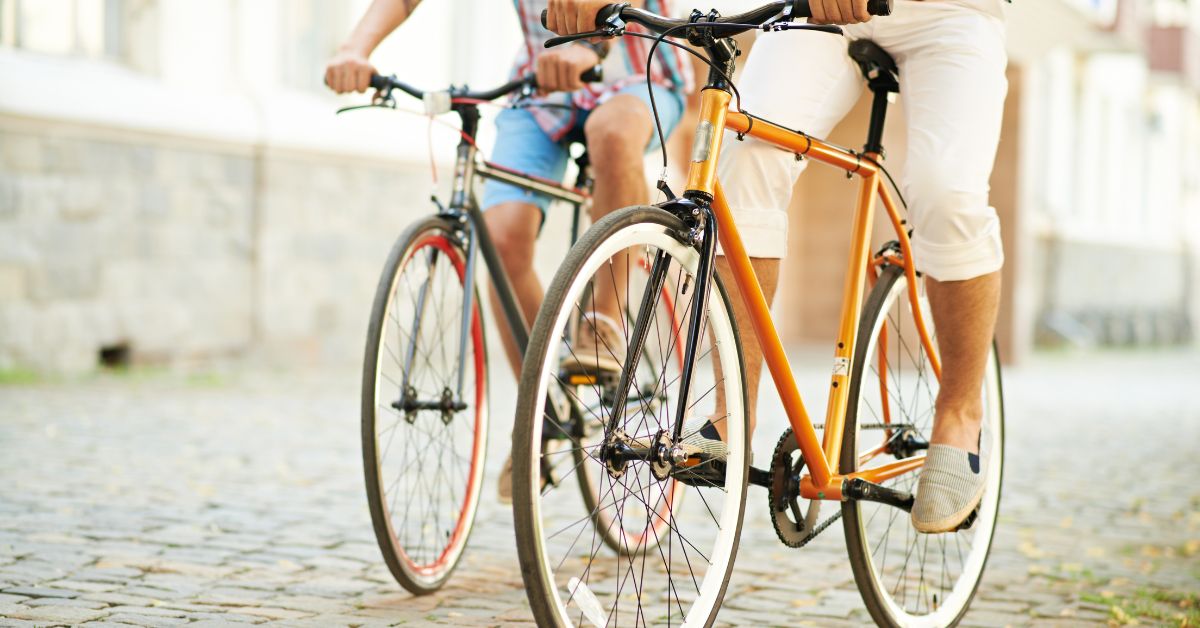The law is very clear about the consequences of being intoxicated while operating a vehicle with four wheels, but what about when that “vehicle” only has two of them? We’re talking about bikes, the non-motorized kinds, and whether or not it’s possible to get into legal trouble for riding one with a BAC (blood alcohol concentration) of 0.08% or higher. If you’ve ever wondered “can you get a DUI on a bike?” strap on your helmet, the answer is one wild ride.
Can you get a DUI on a bicycle?
Depending on the state, it’s absolutely possible for a cyclist to get pulled over by law enforcement and charged with driving under the influence. In fact, a drunk bicyclist could even be arrested and detained because of it.
Understandably, many people aren’t aware that getting a DUI on a bicycle is even a remote possibility. The ‘D’ in DUI stands for driving after all, a term used almost exclusively to describe the act of operating gas or electric-powered vehicles. So, how can such a charge be applicable to someone on a set of wheels that are operated by pushing pedals?
The reason boils down to DUI law and what the statute says — or doesn’t say. Specifically, the legal definition of what’s considered a vehicle. DUI statutes vary from state to state, with some only having vague wording about what counts as a vehicle while others are more specific.
Some states specify that DUIs can only apply to motor vehicles or may explicitly exclude bicycles from these statutes altogether. Other states are much more general, referring to vehicles as anything capable of transporting people. It is these latter types of statutes that allow law enforcement the ability to dictate whether your mode of transportation is eligible to earn you a DUI.
Additionally, motorized bikes are typically lumped in with other motorized vehicles.
What are the penalties for getting a DUI on a bike?
The wording of these statutes can also affect the severity of such a charge. Some states have a separate set of penalties for cyclists — but this isn’t common. Most states treat intoxicated bicyclists with the same charges as if they were operating a car.
Common penalties can include:
- Fines ranging from a few hundred to a few thousand dollars
- Jail time of up to a year or more depending on if it’s a felony DUI)
- License suspension for a few months to a few years
- Put on probation
- Substance abuse evaluation and treatment
If a bicycle DUI case ends up in court, these offenses are typically treated with a bit more leniency since a bicycle poses much less danger on the road than a motor vehicle. However, this is not the case if a person has multiple DUI charges.
A person’s first DUI is considered a misdemeanor in most states. It isn’t until a person has had multiple DUI convictions that it would be classified as a felony, regardless of vehicle type.
Why you got pulled over: Is it illegal to ride a bike drunk?
So, we know that it’s possible to get a DUI on a bike, but what grounds would an officer have to pull someone over in the first place? Once again, the answer is “it depends”, and can vary based on a state’s DUI laws.
Certain states explicitly say that riding a bicycle while drunk is a crime. In other instances where the law isn’t as straightforward, DUI law allows officers to stop people who are behaving in a way that shows that they’re clearly intoxicated.
However, there’s another reason why a person could get a DUI on a bike that falls outside of DUI law: public intoxication. It’s a broad offense that every single state has some degree of regulation on. In addition to possibly disruptive behavior in public, an officer may stop someone who’s intoxicated in a public place for potentially being a danger to others or themselves.
Through this general, catch-all charge, someone who’s drunk on a bicycle could legally be stopped at an officer’s discretion. Public intoxication rules are also the reason why it’s not just bicycling that can earn someone a DUI but walking while intoxicated can get a person in trouble as well.
It might seem like you’re doing the responsible thing by not drinking and driving, but traveling in any form can be extremely dangerous if you’re inebriated. If you or a loved one has had their driving rights revoked due to driving under the influence, it’s time to get help. Find an Alcoholics Anonymous group near you today and put yourself back in the driver’s seat of your life.
